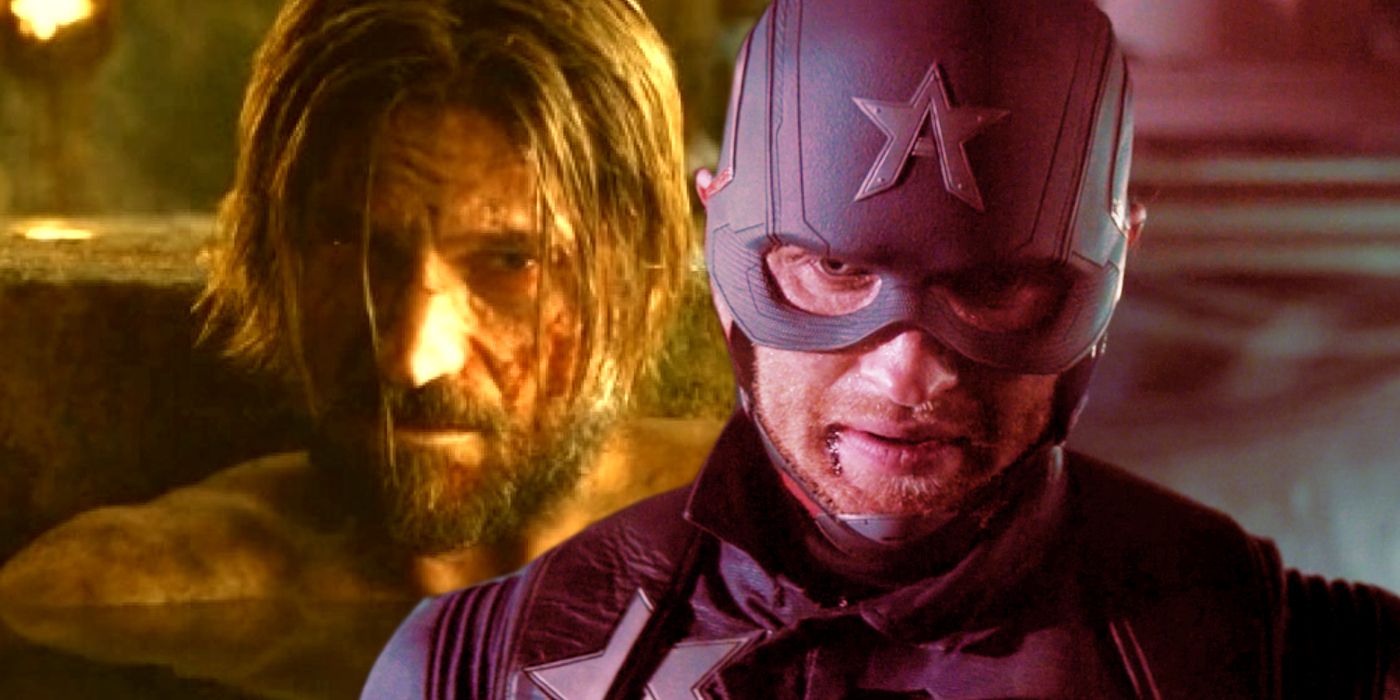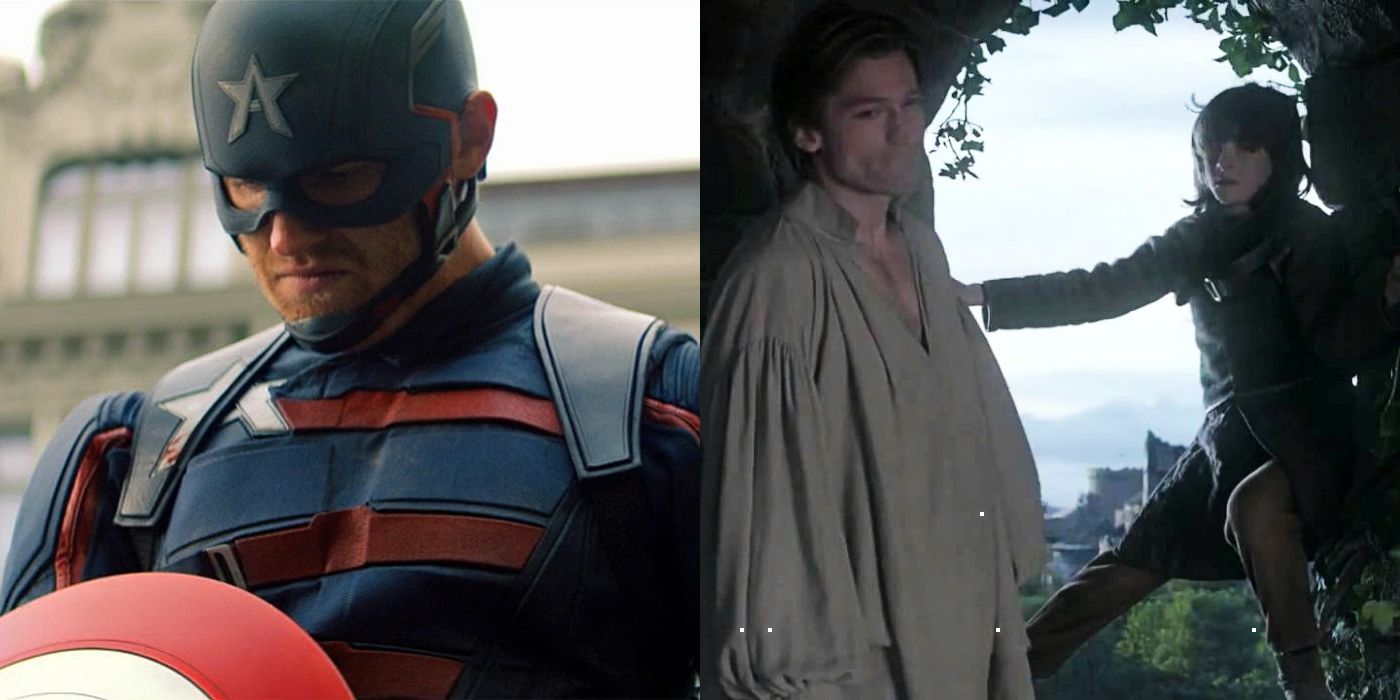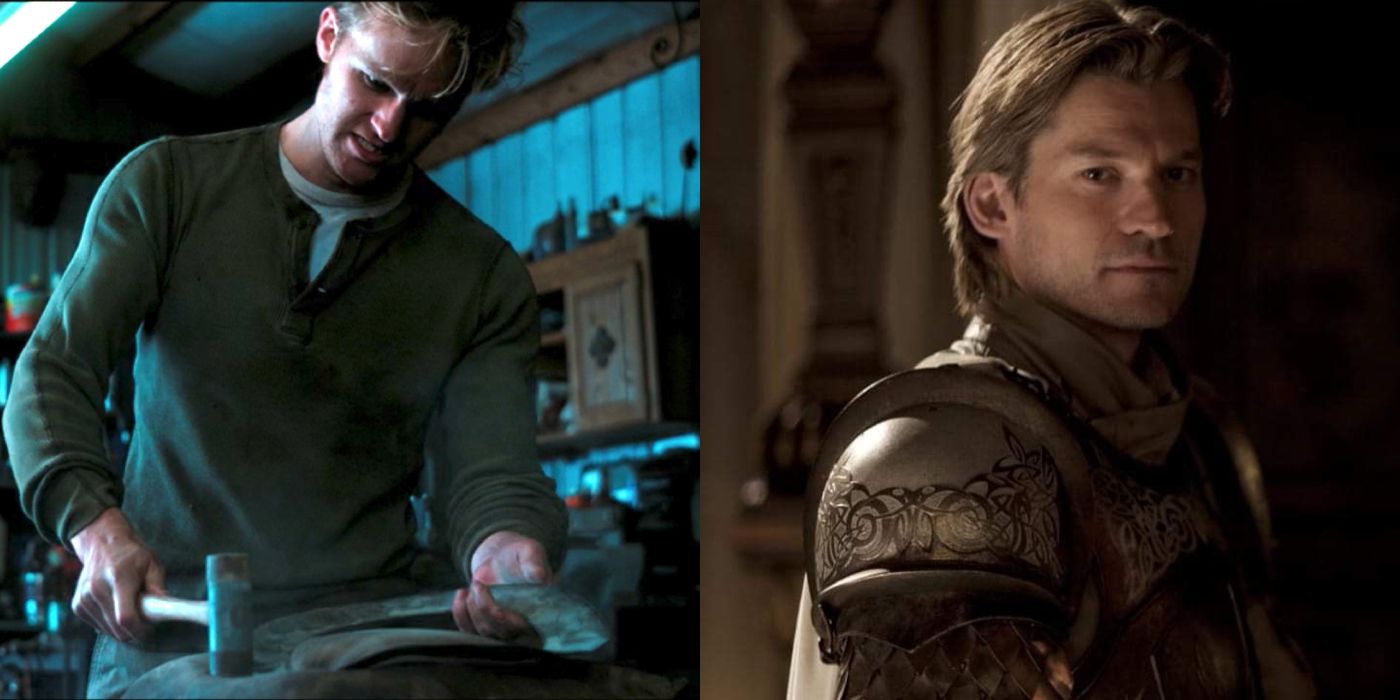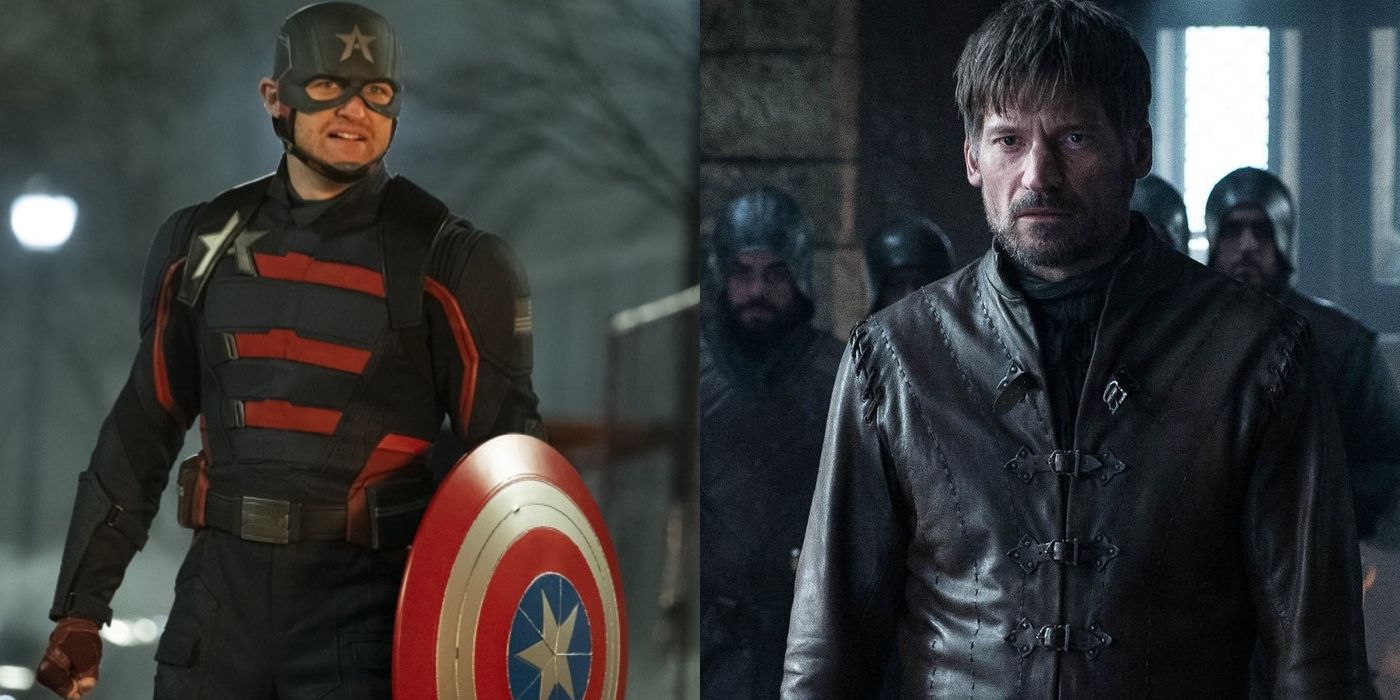John Walker's heroic arc didn't work in The Falcon and the Winter Soldier, and Jaime Lannister's story across Game of Thrones gives a good example of what Marvel tried to do and why it failed. Introduced at the end of Falcon & Winter Soldier episode 1, fans took an immediate dislike to John Walker, the new Captain America. In part he always had an impossible task, because living up to the legacy of Steve Rogers is no easy feat (something even Walker was aware of), but it wasn't helped by his own arrogance, ego, and anger.
All of those negative traits continued to develop across his time as Captain America, and then were amplified when he took the super soldier serum. As Abraham Erskine warned, bad becomes evil with the serum, and for Walker that meant avenging the loss of his best friend, Lemar Hoskins, by killing a Flag-Smasher, Nico. And yet, Walker wasn't inherently evil - he was a person who had fought with valor while in the army, and who did want to be a good Captain America. That's a notion Marvel played on, because Falcon & Winter Soldier wanted fans to like Walker by the end of the show.
HIs apparent redemption in the finale didn't go down too well; while he may be dressed up as US Agent, there wasn't enough from the character to earn that moment, nor to make viewers change their minds about him. A parallel to Walker's story can be found in Game of Thrones with Jaime Lannister, another complicated tale of heroism, redemption, and tragedy surrounding a man-gone-wrong-turned-right-again, in part by the very system he worked for. But in both how Jaime's arc worked and what it got wrong, it highlights the problems with Walker's own story.
The Parallels Between John Walker & Jaime Lannister
While John Walker and Jaime Lannister operate in very different worlds, there are some similarities between them. Walker is a soldier so great he was given three Medals of Honor; Jaime a Knight so prodigiously talented he was made a member of the Kingsguard as a teenager. Both men were loyal to their lands and the regimes they worked for, even if those same regimes weren't as loyal to them; both risked their lives to be heroes, and reaped rewards of that too. There's a clear sense of arrogance and egotism in both Walker and Jaime, but their arcs also contain elements of tragedy as well.
In terms of story, then Walker gets his first real "Jaime Lannister" moment in The Falcon and the Winter Soldier episode 4, when he kills Nico. This is ostensibly the point of no return; the moment where he cements himself as the villain of the piece both in-universe and to viewers. For Jaime, there are arguably two such instances. The first came before Game of Thrones even started, when he killed the Mad King, Aerys II Targaryen, which would lead to him being forever branded the Kingslayer. But of course, that itself was secretly a moment of heroism, even if the realm didn't know it. Jaime's true equivalent of Nico's death, then, was pushing Bran Stark from the window at the end of Game of Thrones' pilot.
Both men did acts of shocking evil, which they would both see as justifiable, whether it was for justice, protection, or love. And following both of those points of no return, both Jaime and Walker would go on to be redeemed by their shows; to become likeable (or at least, the writers hoped that would be the case), and to become more heroic. It would have them faced with choices between good and bad, right and wrong, and while they'd sometimes falter, the through line was clear that redemption was a path they were both on.
The Key Distinction Between John Walker & Jaime Lannister
There are a few reasons why John Walker's arc in The Falcon and the Winter Soldier didn't work as well as Jaime Lannister's in Game of Thrones, not least pacing, but perhaps the biggest problem stems from what the characters inherently believe about themselves. While both men have backstories of them serving as heroes that occurred off-screen, their presentation in the present timelines of their respective shows is quite different. Walker, though knowing he isn't Steve Rogers, genuinely believes he is a hero. In contrast, there are few who hate Jaime more than he hates himself - the self-loathing that is buried deep within him comes out a few times across Game of Thrones, in particular during his bath scene with Brienne in season 3's "Kissed By Fire." Jaime being "bad" is very much baked into his character from the very beginning of the show, and it's something that viewers then get to see the truth of and how complicated that is.
However, it's also smartly flipped: because the act that damned Jaime was actually his greatest moment of heroism; what should have defined his life as Westeros' savior instead cursed him to be labelled a Kingslayer, and so he played the part and became what people thought of him. There is no such moment with Walker. While he does struggle with some of Steve's legacy, he nonetheless believes he can be Captain America, and believes himself to be a hero, without the same self-reflection witnessed in Jaime. He lies to Lemar's parents about what happened, he lies to Bucky Barnes and Sam Wilson about it, and most of all he lies to himself so much that it becomes his truth. That means there's no true sense of redemption, because he never completely thought that he needed to find it.
Jaime Lannister Shows Why John Walker's Hero Arc Failed
For all the parallels in the stories of John Walker and Jaime Lannister, the core differences help highlight why the latter worked when the former didn't. But of course, it's not an entirely true 1:1 comparison, and that itself shows the biggest problem - because in theory, Walker's arc could and arguably should have worked, it was just never going to be possible to pull off in a six episode TV show, especially one where he wasn't even the main focus. Jaime's arc was so brilliant because it had the time to develop: across Game of Thrones season 1, he is pretty loathsome, but season 2 starts to give a few more shades to his character, and then season 3 is when the full scope of it is revealed as he loses his hand, saves Brienne, and discusses what really happened with the Mad King.
Even after that, Jaime's redemption wasn't complete, because that idea alone is a very messy, complex thing, and it has to continually be worked at - and that's before getting to the sense that his story wasn't just one of redemption, but of tragedy too, which is why he turned back to Cersei in the end. That ending itself further shows the problems with Walker: Jaime's arc in Game of Thrones season 8 was a weaker part of his story, because the turn from his choosing to fight for the living, anointing Brienne as a Knight and sleeping with her, and then throwing away that chance of genuine happiness to be with Cersei happened so quickly. But at the very least, it was underpinned by all the great work that had come before. Imagine if, instead, Jaime had pushed Bran out of the window in episode 1, but was then crying in the bath by the season 1 finale?
That's what happens with Walker, who kills Nico at the end of episode 4, but is saving the truck and working with the titular heroes barely an hour later. There's no time to understand who he is, nor explore the character - both the good and the bad. The only time Walker opens up is in episode 2, when there are mentions of his past and flickers of doubt, but the show needed far more of those, across a much longer span, in order for his fall to fully land and his eventual rise to work. The idea of Walker's story in The Falcon and the Winter Soldier is not a completely bad one, and while viewers may never come to like him as a person, they could like him as a well-rounded, complex character, but it blazed past the part of the journey in the middle, which may be the most difficult to get right, but is also the most important and rewarding, as seen in Game of Thrones and Jaime Lannister.












